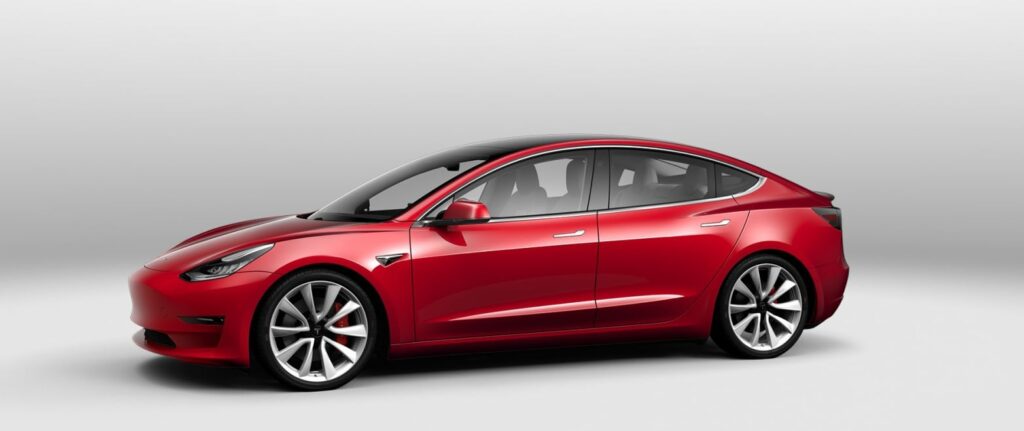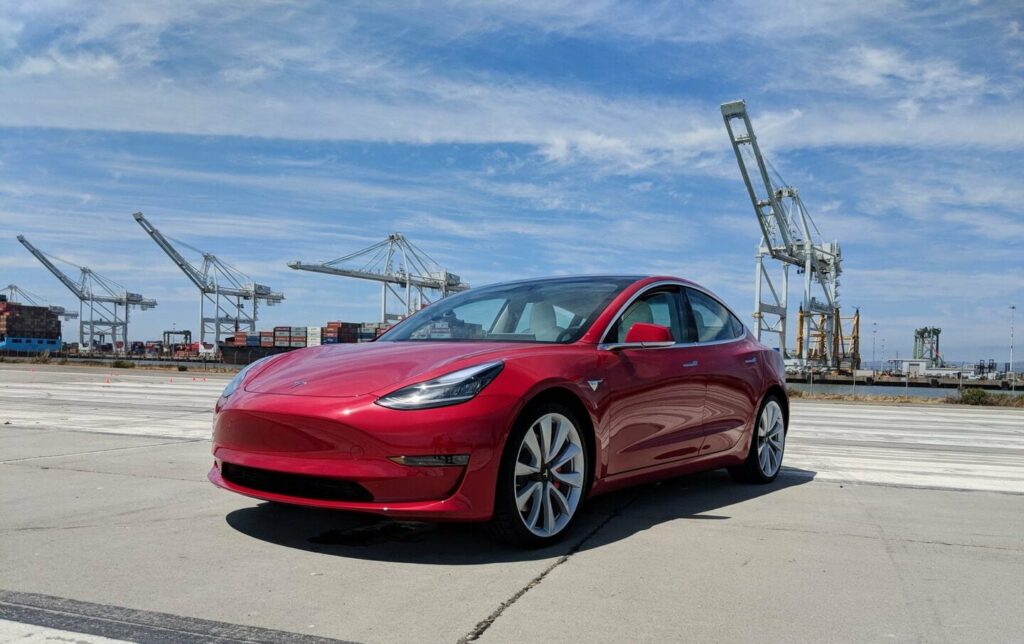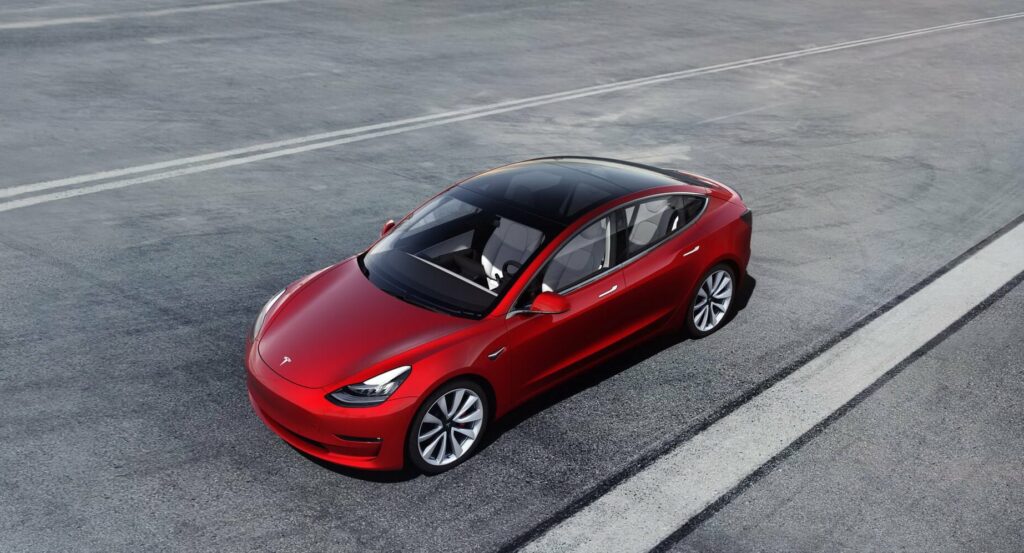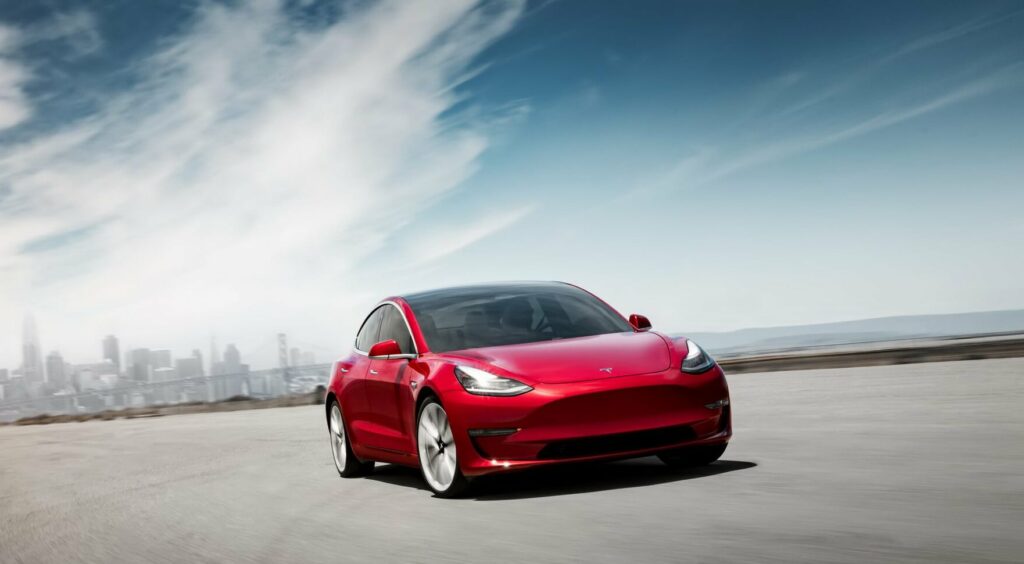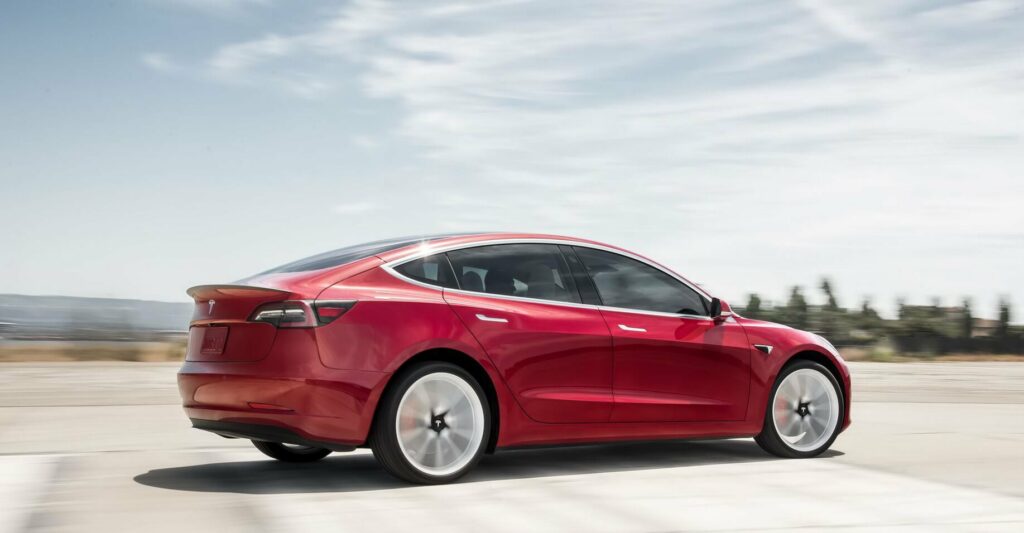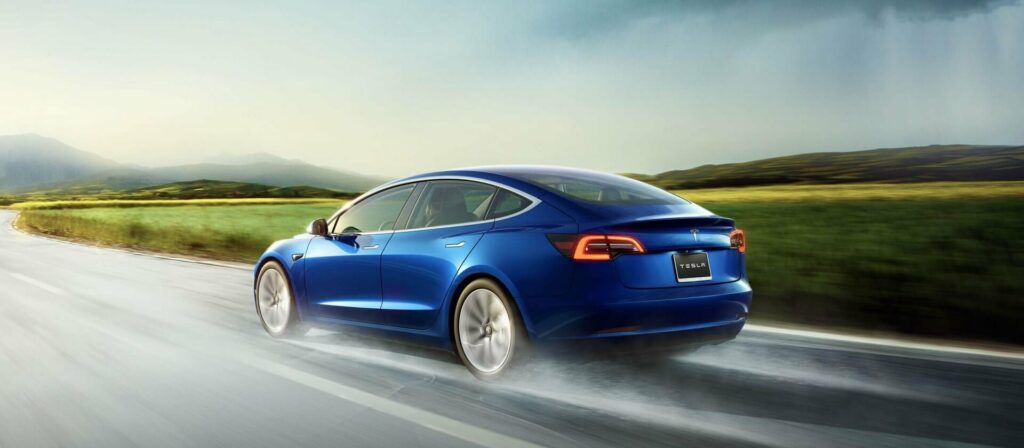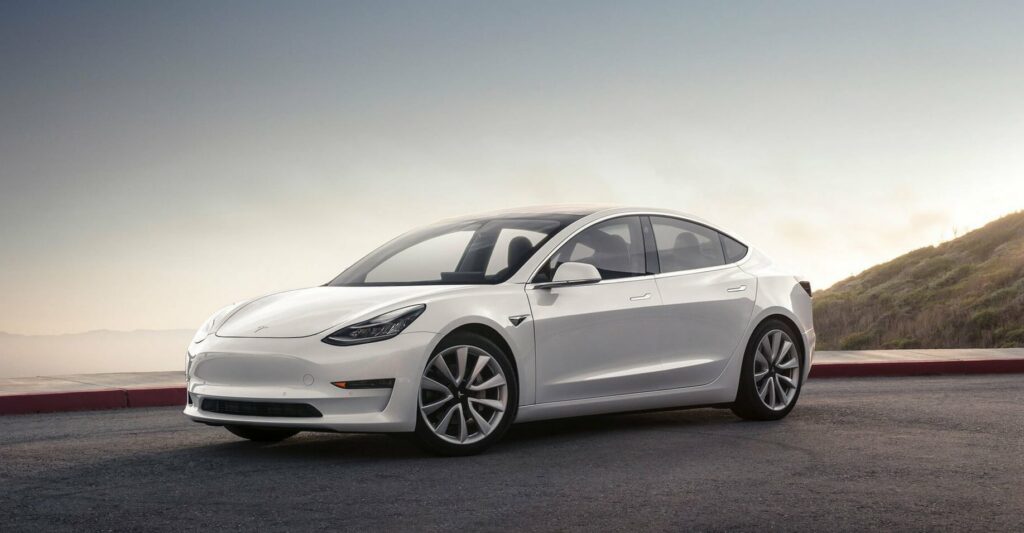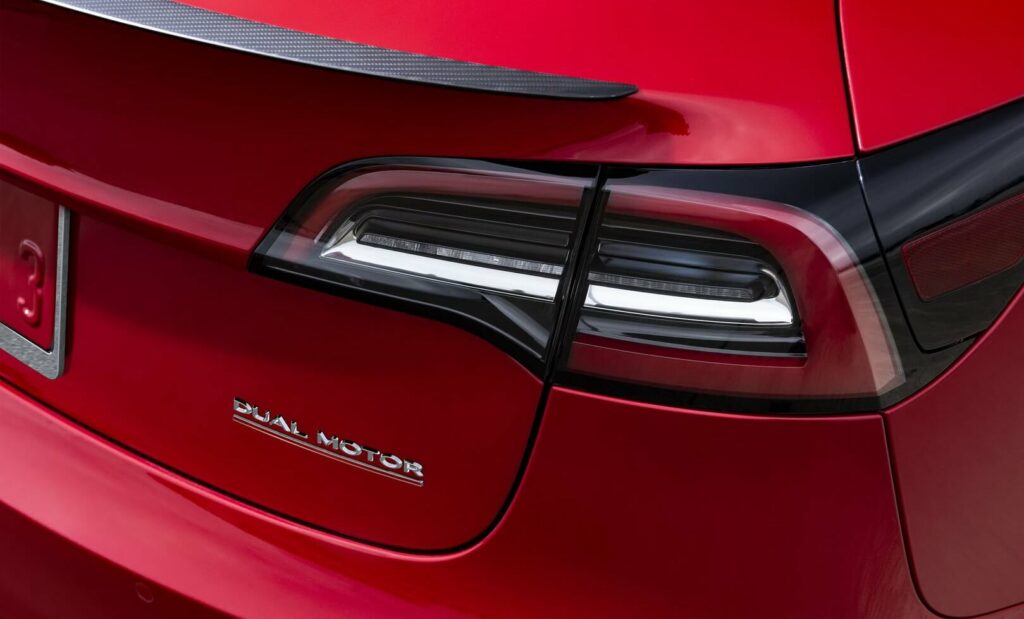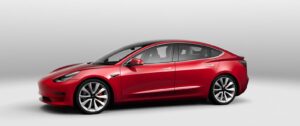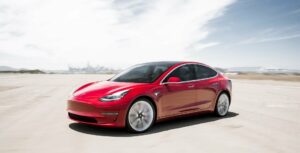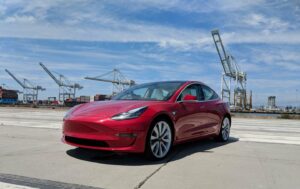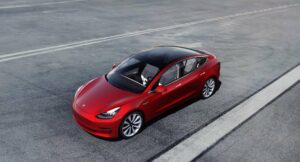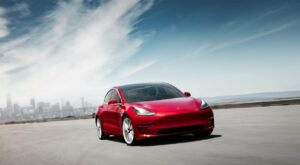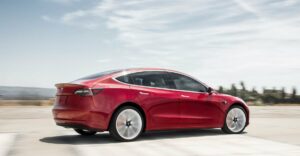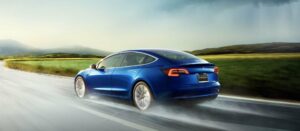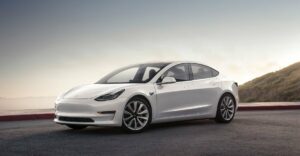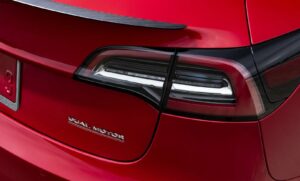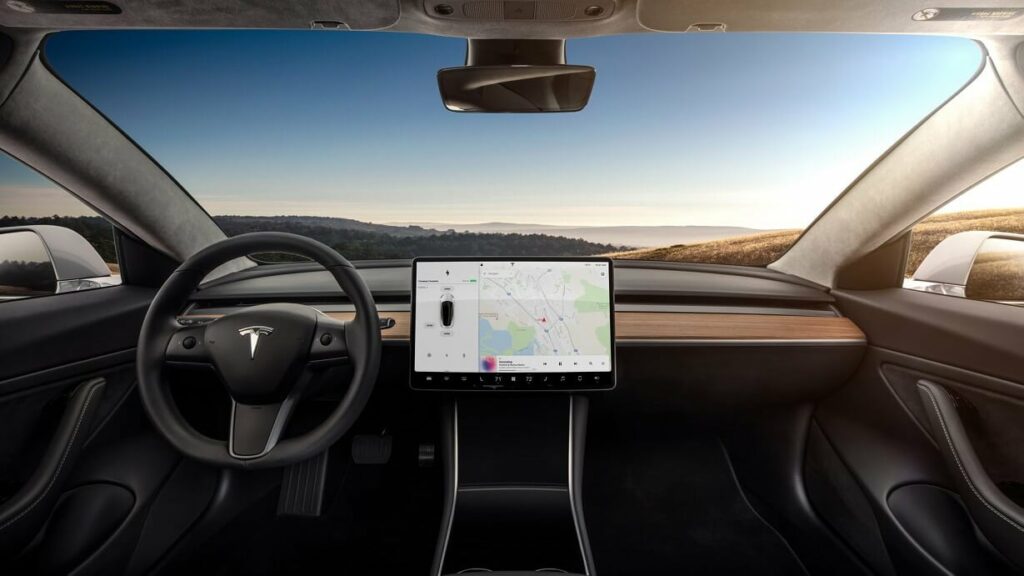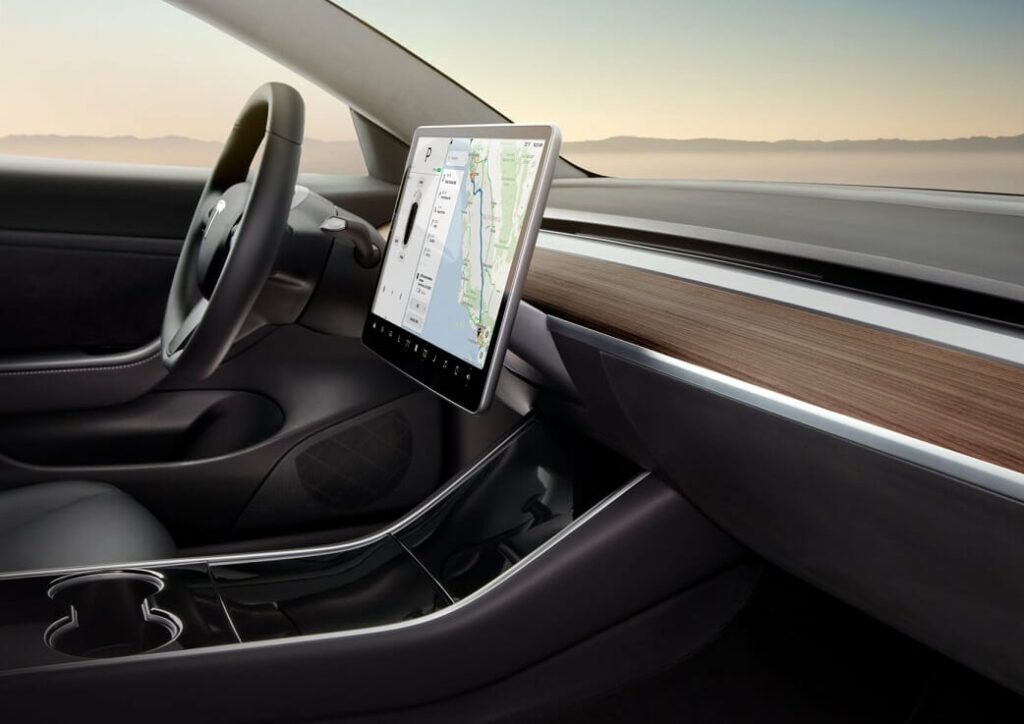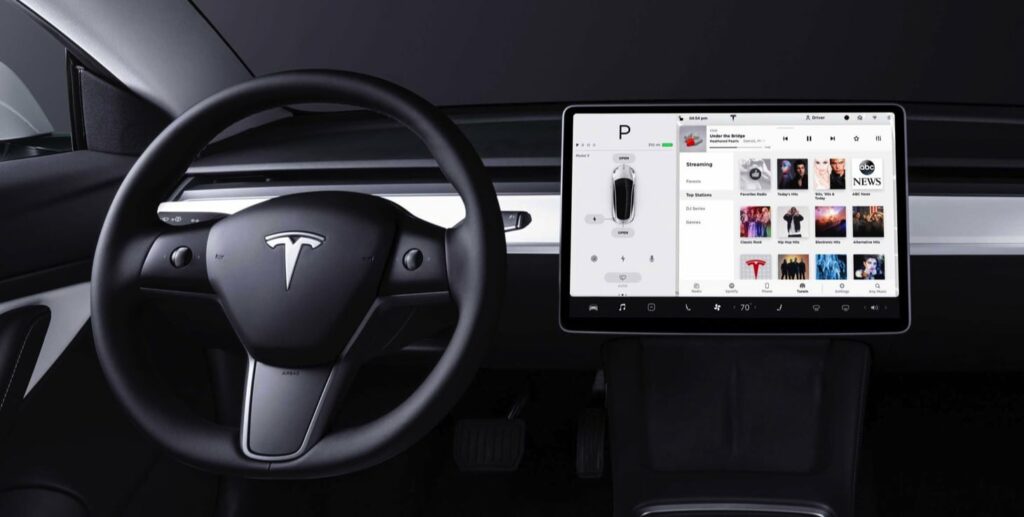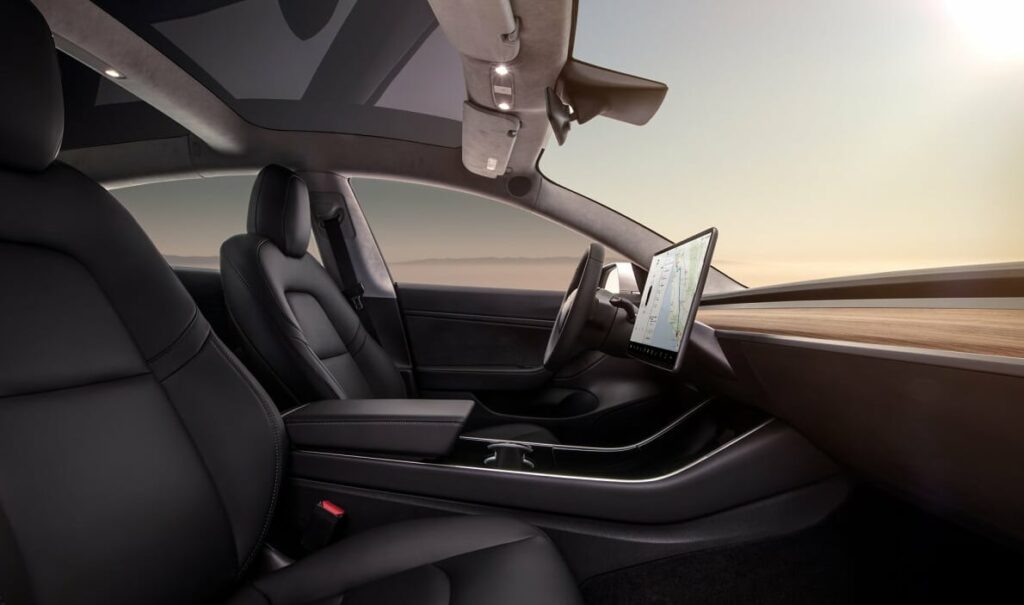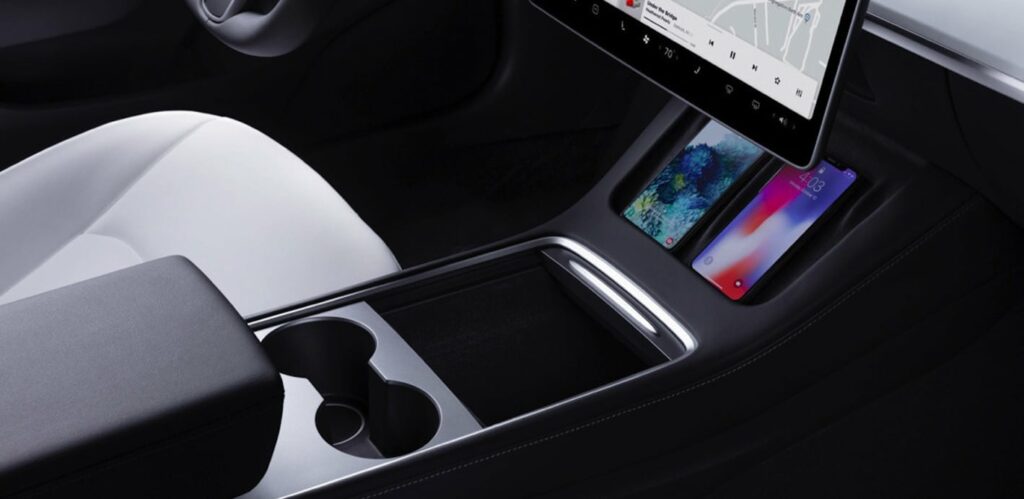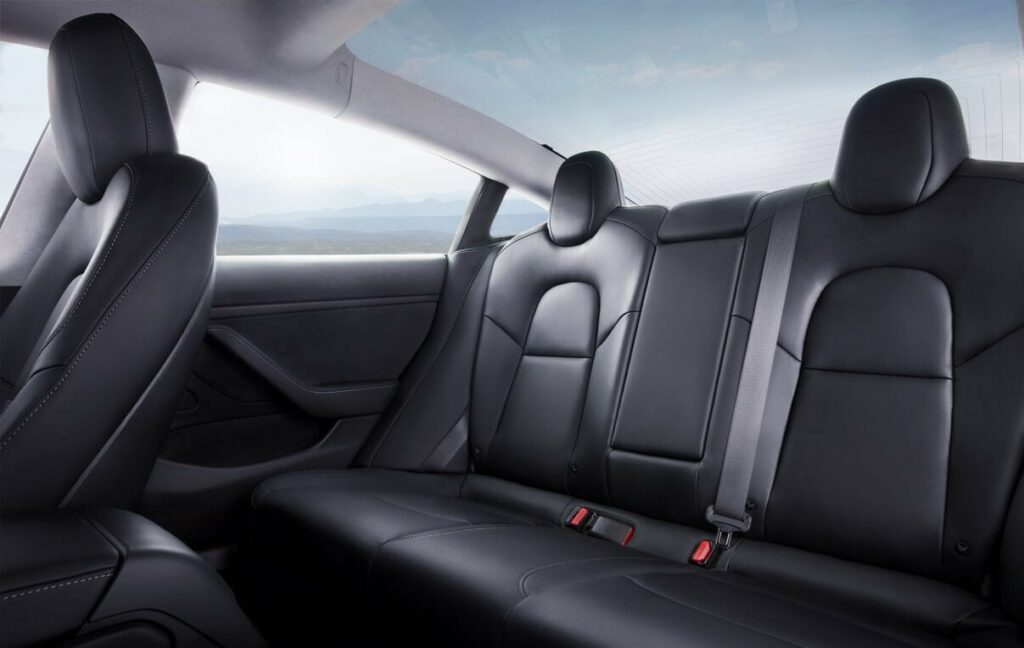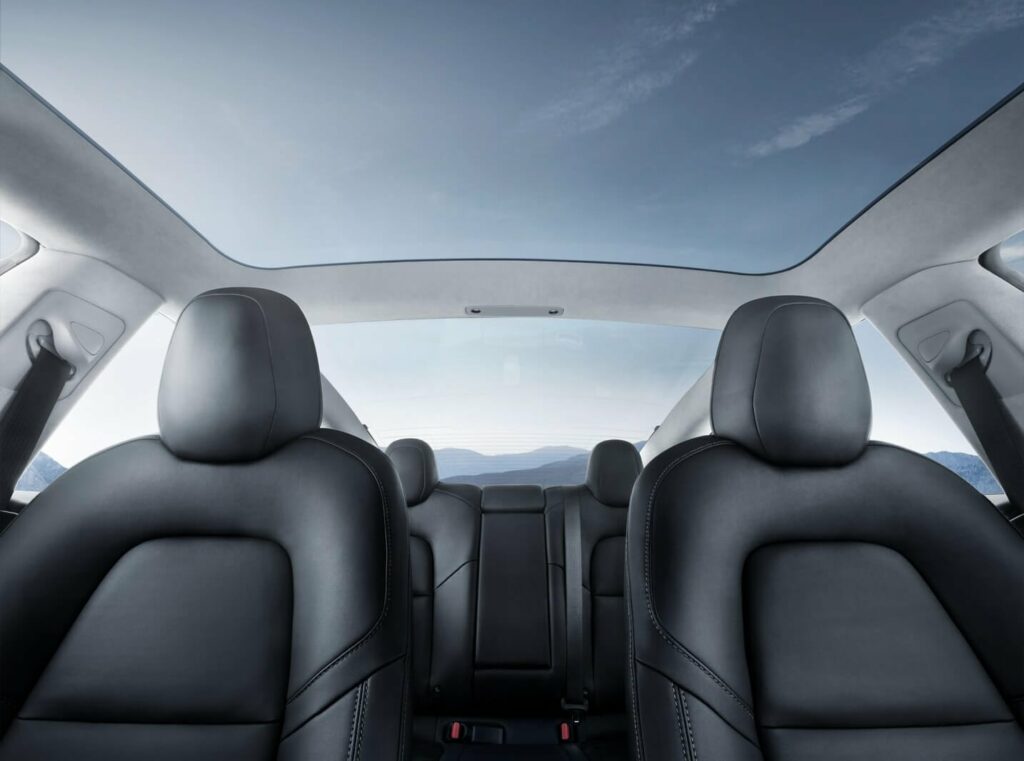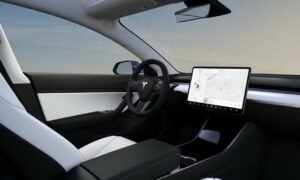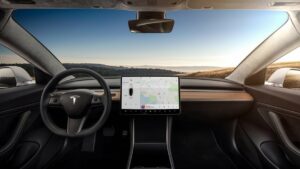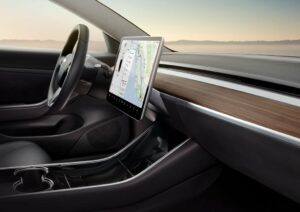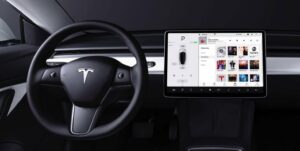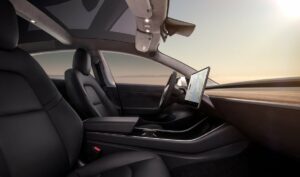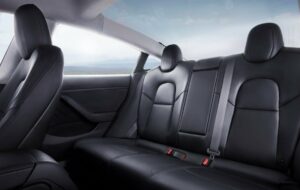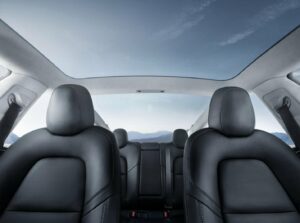Tesla Model 3 Performance
The Tesla Model 3 Performance is a high-performance variant of the popular Tesla Model 3 electric car. It is equipped with a powerful electric motor and a long-range battery pack, which allow it to accelerate quickly and travel long distances on a single charge.
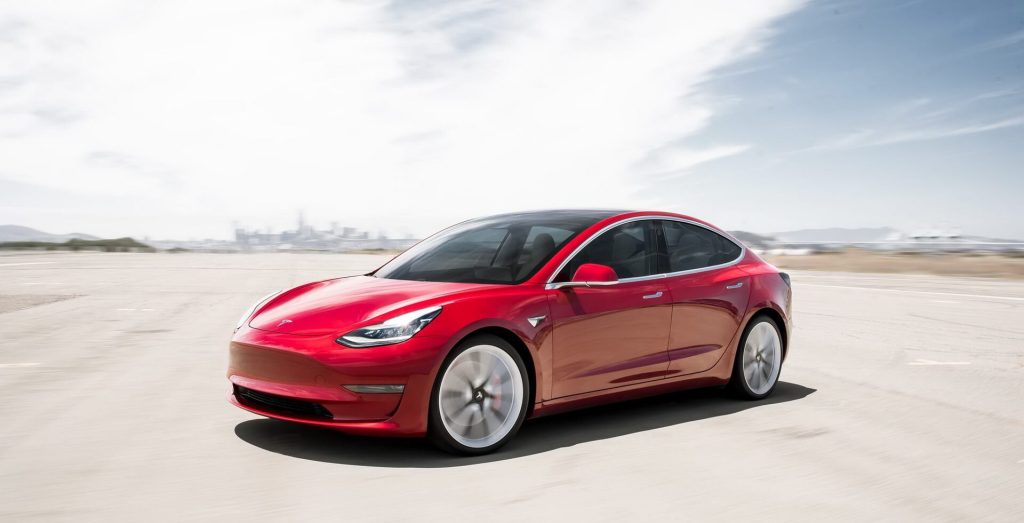
Here are some key specs of the Tesla Model 3 Performance:
Acceleration: 100 km/h (0-60 mph) in 3.3 seconds
Top speed: 261 km/h
Range: 470 km on a single charge
Motor: Dual electric motor all-wheel drive
Power output: 420 horsepower
Torque: 660 Nm
Battery: Long Range 82 kWh
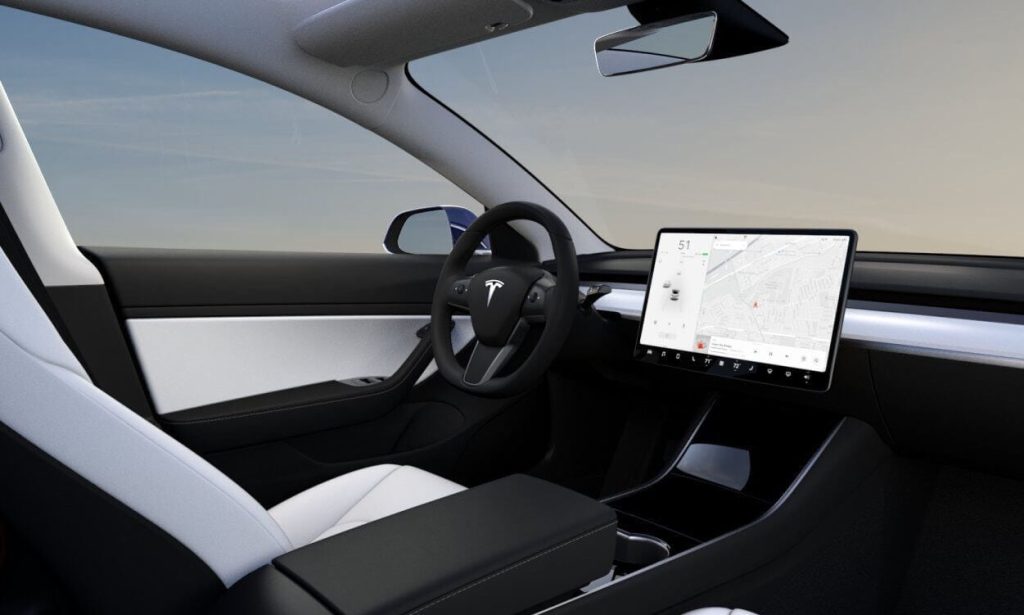
The Model 3 Performance also features a number of performance-focused upgrades, including a sport-tuned suspension, larger brakes, and unique 20-inch wheels. It also comes with a Track Mode feature that allows the driver to optimize the car’s performance for racing or other high-performance driving scenarios.
Overall, the Tesla Model 3 Performance is a powerful and capable electric car that offers impressive acceleration, a long-range, and a range of performance-focused features. It is a popular choice for those who are looking for a high-performance electric car that can compete with traditional gas-powered sports cars.
| Performance | |
| Acceleration 0 – 100 km/h | 3.3 sec |
| Top Speed | 261 km/h |
| Electric Range | 470 km |
| Total Power | 420 kW (571 PS) |
| Total Torque | 660 Nm |
| Drive | AWD |
| Battery and Charging | |
| Battery Capacity | 82.0 kWh |
| Battery Useable | 76.0 kWh |
| Europe | |
| Charge Port | Type 2 |
| Port Location | Left Side – Rear |
| Charge Power | 11 kW AC |
| Charge Time (0->470 km) | 8h15m |
| Charge Speed | 58 km/h |
| Fastcharge Port | CCS |
| FC Port Location | Left Side – Rear |
| Fastcharge Power (max) | 250 kW DC |
| Fastcharge Time (47->376 km) | 25 min |
| Fastcharge Speed | 790 km/h |
| Energy Consumption | |
| EVDB Real Range | |
| Range | 470 km |
| Vehicle Consumption | 162 Wh/km |
| CO2 Emissions | 0 g/km |
| Vehicle Fuel Equivalent | 1.8 l/100km |
| WLTP Ratings | |
| Range | 567 km |
| Rated Consumption | 165 Wh/km |
| Vehicle Consumption | 134 Wh/km |
| CO2 Emissions | 0 g/km |
| Rated Fuel Equivalent | 1.9 l/100km |
| Vehicle Fuel Equivalent | 1.5 l/100km |
|
Rated = official figures as published by manufacturer. Rated consumption and fuel equivalency figures include charging losses.
|
|
|
Vehicle = calculated battery energy consumption used by the vehicle for propulsion and on-board systems.
|
|
| Real Energy Consumption between 112 – 224 Wh/km | |
| City – Cold Weather | 171 Wh/km |
| Highway – Cold Weather | 224 Wh/km |
| Combined – Cold Weather | 195 Wh/km |
| City – Mild Weather | 112 Wh/km |
| Highway – Mild Weather | 173 Wh/km |
| Combined – Mild Weather | 139 Wh/km |
| Energy use for each trip will vary considerably depending on the driver and the conditions. Therefore, we have provided a range of estimates which can be useful in developing an understanding of the potential benefits of this technology. | |
| Safety (Euro NCAP) | |
| Adult Occupant | 96% |
| Child Occupant | 86% |
| Rating Year | 2019 |
| Vulnerable Road Users | 74% |
| Safety Assist | 94% |
| Dimensions and Weight | |
| Length | 4694 mm |
| Width | 1849 mm |
| Width with mirrors | 2088 mm |
| Height | 1443 mm |
| Wheelbase | 2875 mm |
| Weight Unladen (EU) | 1919 kg |
| Gross Vehicle Weight (GVWR) | 2232 kg |
| Max. Payload | 388 kg |
| Cargo Volume | 561 L |
| Cargo Volume Max | No Data |
| Cargo Volume Frunk | 88 L |
| Roof Load | 70 kg |
| Tow Hitch Possible | No Data |
| Towing Weight Unbraked | 0 kg |
| Towing Weight Braked | 0 kg |
| Vertical Load Max | No Data |
| Miscellaneous | |
| Seats | 5 people |
| Isofix | Yes, 2 seats |
| Turning Circle | 11.6 m |
| Platform | TESLA 3/Y |
| Car Body | Sedan |
| Segment | D – Large |
| Roof Rails | No |
| EV Dedicated Platform | Yes |
Home and Destination Charging (0 -> 100%)
A public charging station is required to use the highest possible charging rate. The EVSE/charging station’s charging capacity affects how long it takes to fully charge the battery. The table below shows all possible options for fully charging the Tesla Model 3 Performance.
In Europe, plugging an electric car into an outlet is often as easy as plugging it into a household outlet, but there are differences from country to country. The table below shows the different ways to charge the Tesla Model 3 Performance, but in some countries some chargers may not be available.
Type 2 ( IEC 62196)

| Charging Point | Max. Power | Power | Time | Rate |
| Wall Plug (2.3 kW) | 230V / 1x10A | 2.3 kW | 39 hours | 12 km/h |
| 1-phase 16A (3.7 kW) | 230V / 1x16A | 3.7 kW | 24h15m | 19 km/h |
| 1-phase 32A (7.4 kW) | 230V / 1x32A | 7.4 kW | 12h15m | 38 km/h |
| 3-phase 16A (11 kW) | 400V / 3x16A | 11 kW | 8h15m | 57 km/h |
| 3-phase 32A (22 kW) | 400V / 3x16A | 11 kW | 8h15m | 57 km/h |
Fast Charging (10 -> 80%)
If you want to enjoy driving an electric car, one of the most important features to consider is the number of miles per hour the car can travel while charged. This is called the “range” of the car. All electric cars have a certain range, even if they are 100% charged. This is because they do not have an internal combustion engine to lean on if you need to drive a long distance.
Max. Power: The maximum power provided by the charging point
Avg. Power: The average power provided by the charging point during a session of 10% to 80%.
Time: the time it takes to charge from 10% to 80%
Speed: the average charging rate during the session of 10% to 80%
Combined Charging System (CCS Combo 2)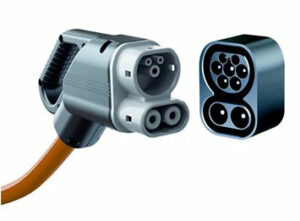
| Charging Point | Max. Power | Avg. Power | Time | Rate |
| CCS (50 kW DC) | 50 kW | 50 kW | 67 min | 290 km/h |
| Supercharger v2 Shared (75 kW DC) | 75 kW | 65 kW | 52 min | 380 km/h |
| Supercharger v2 (150 kW DC) | 150 kW | 105 kW | 32 min | 610 km/h |
| CCS (175 kW DC) | 175 kW | 115 kW | 29 min | 680 km/h |
| Supercharger v3 (250 kW DC) | 250 kW | 135 kW | 25 min | 790 km/h |
| CCS (350 kW DC) | 250 kW | 135 kW | 25 min | 790 km/h |
| Brand | Tesla |
| Model | Model 3 Performance |
| Body Style | Sedan |
| Car Engine | electric |
| Motor power | 420 |
| Maximum Torque, Nm | 660 |
| Battery Energy, kWh | 82.0 |
| Power reserve (NEDC/EPA/WLTP), km | - / - / 470 |
| Level Charging (230/400/DC), hours | - / 8.15 / 0.25 |
| Electrical Acceleration, 0-100 km/h (0-62.1 mph) in sec | 3.3 |
| Top Speed, km/h | 261 |
